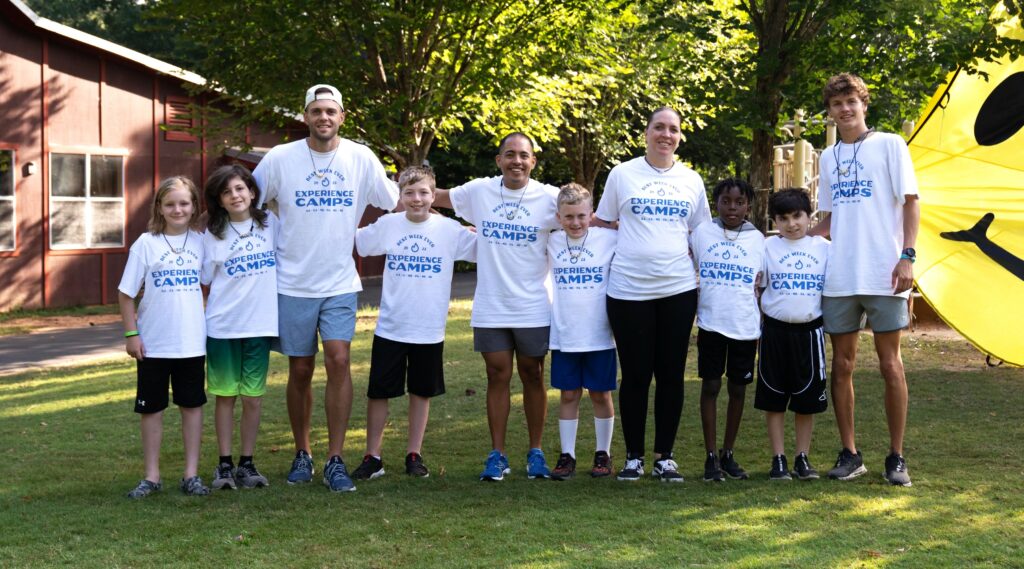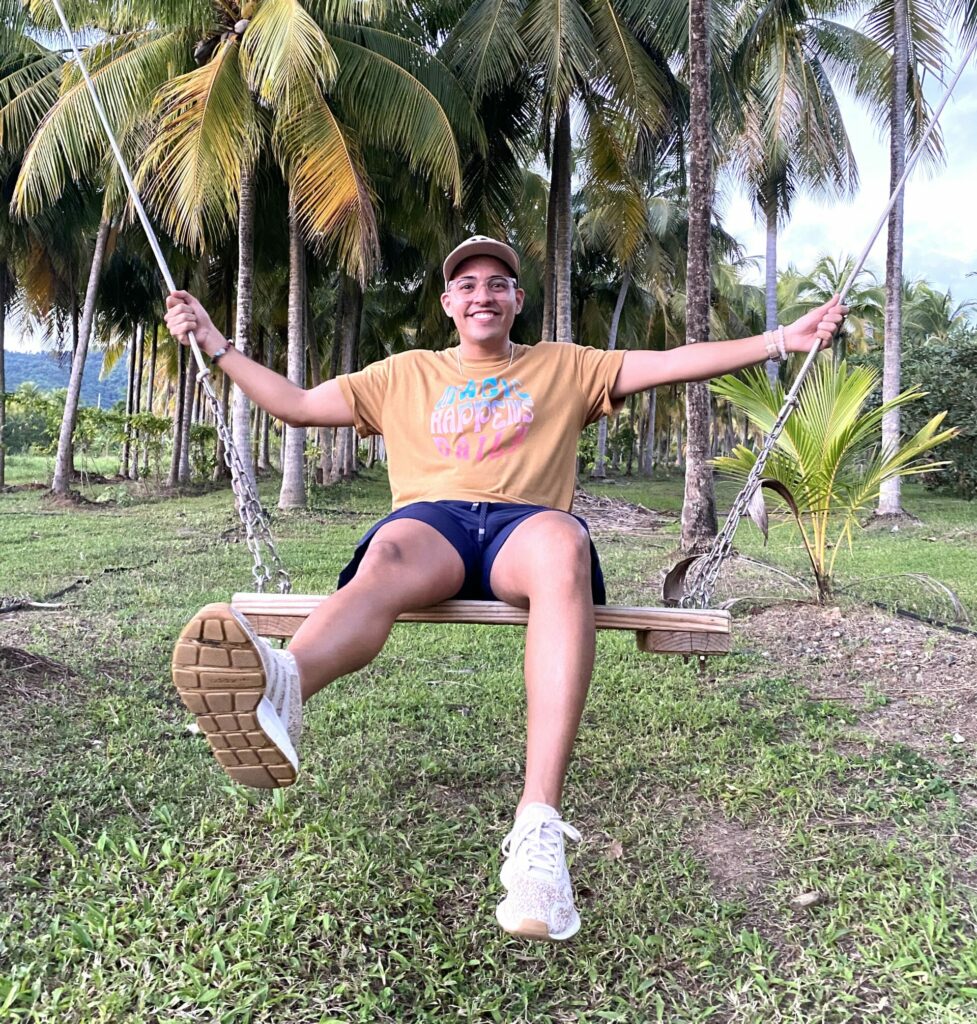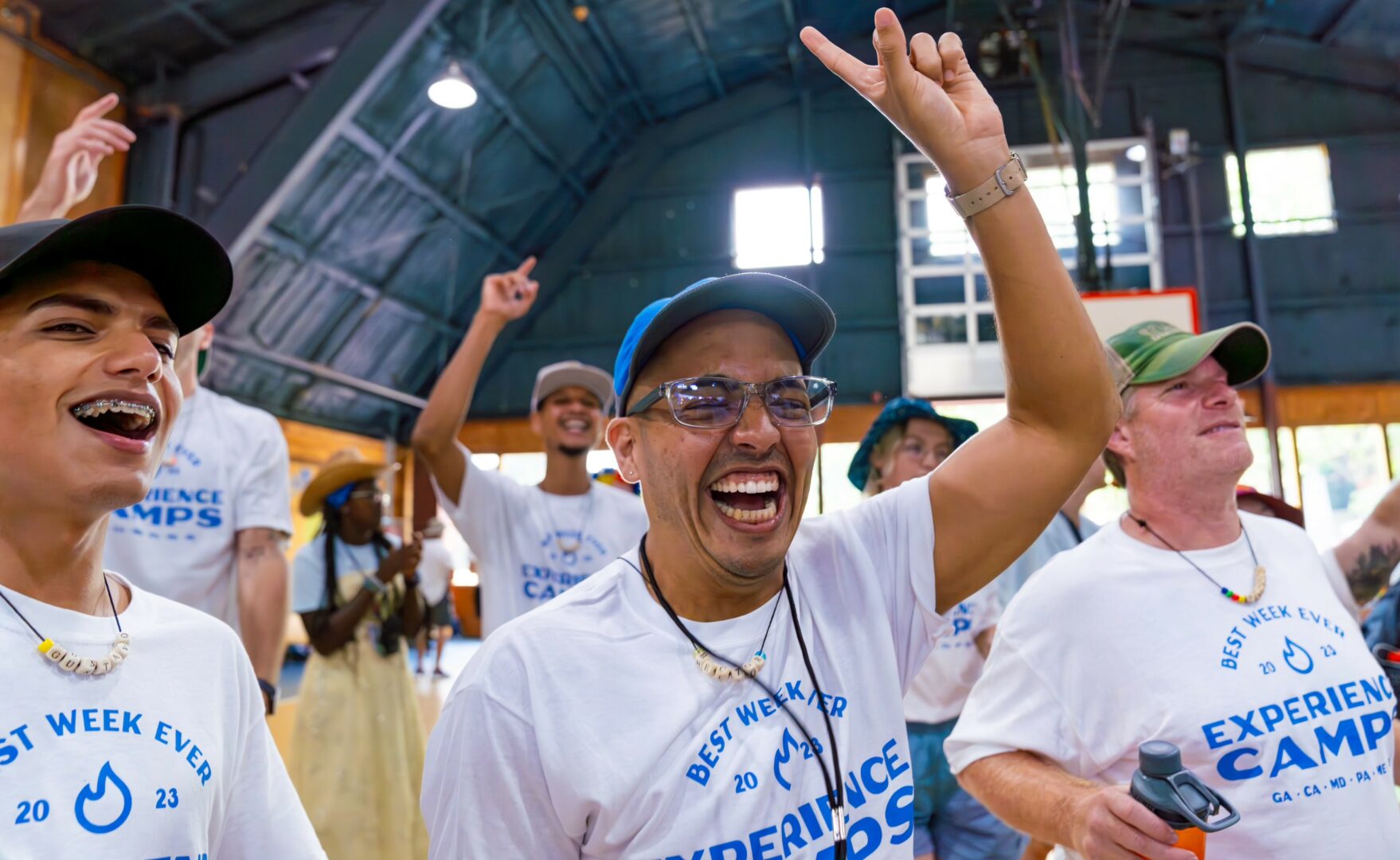In spite of the fact that I’m a Doctor of Clinical Psychology Candidate and Grief Specialist at Experience camps, I didn’t know what grief was for a long time. In fact, Experience Camps pretty much taught me.
My learning adventure started in 2022, when I headed to Experience Camps in Pennsylvania to volunteer for the summer. I travelled all the way from my beautiful island of Puerto Rico. It was my first time in New York (where my flight landed), and as I headed on the bus to camp in Pennsylvania, I was full of fears, excitement, doubts, and a lot of other emotions.
One thing I realized quickly is how little I knew about grief. Before I started camp, I would have told you that I hadn’t lost any significant person in my life. That’s what I thought until the second day of camp, when I realized that I had; I had experienced the death of my grandparents from both sides of my family.
I started thinking more about my paternal grandfather, who became so significant to me during his last weeks with us. I finally had the space to share every single stage of his passing. I realized that I was a new version of him in my family, and I felt more related to him.
At age 31, I was just discovering grief…and how to feel it and express it. This is just not something we did back at home in Puerto Rico.
What grief looks like in Puerto Rico
It took camp–and studying to become a Clinical Psychologist–to realize that the information on grief that is provided to prepare mental health professionals is quite weak in Puerto Rico. In our culture, we are not encouraged to talk about anything related to pain. Women are more likely than men to express suffering, but not freely because they have to maintain their calm, serenity, and take care of others, especially kids if they have any.

Me, with my bunk, at Experience Camps
Men aren’t supposed to talk about any sort of pain at all. They are expected to be strong, “macho,” “the rock,” the one to rely on for strength. In a funeral it is common to see women crying while men hold back. In the case of children, most are excluded from everything related to death. This all leads to the idea that death is bad. So we don’t talk about it; we move on: women can cry for a while and men should be supportive but not cry. As for children, the less exposed they are to grief, the better. We are “Latinos.” We are “strong.”
A lack of helpful resources
As a result of these attitudes, it is hard to find accurate grief resources in Puerto Rico. We have Clinical Psychologists, Tanathologists, and Counselors who specialize in grief, but everything is put into a theory, or directed to “make the person heal” or to “help them get over it.” This is NOT what grief is about. I know this because when I talk to grievers, the way I did with campers at Experience Camps, they told me: “That’s what people don’t get about all this.” We don’t get over grief.

I strive to bring more grief resources home to Puerto Rico!
It’s not surprising therefore that in my experience as a school Psychologist (part of my internship) in Puerto Rico, the kids I got to work with, who were dealing with grief and loss, had problems in concentration, focus, disruptive behaviors and low academic performance. Also, when I shared with them about my learnings from Experience Camps and what I learned about grief, the kids were impressed and started talking more freely about their own losses.
One boy I worked with started talking about his grandpa who died, saying repeatedly that he shouldn’t talk about his sadness though because he must remain strong. We spent the semester talking more about his grief, and his parents told me later that he was much calmer and focused.
I’m so motivated to continue my work on grief and keep striving to learn at Experience Camps. I look forward to taking all this learning on grief to my beloved Puerto Rico. My hope is that grieving kids in Puerto Rico and all Spanish-speaking communities will have their voices heard. I want them to have a space to talk about their losses…no more crying alone, or “holding up.” We are humans, all meant to feel and express.
Héctor L. E. Olivencia Huertas is a Doctor of Clinical Psychology Candidate in Puerto Rico, who started with Experience Camps in 2022 as staff member and in 2023 he became Grief Specialist. He’s currently working on an investigation project focused on how mental health professionals are addressing grieving children in Puerto Rico. He found his career purpose in Experience Camps.

Comment *En mi opinión entiendo que este problema es más cultural pero con educación y orientación estamos cambiando esa mentalidad.
Gracias por tu comentario.
Por eso mismo lo publiqué… para re-educar. Pronto vienen más recursos como este.
Hello There! I love this article! Thank you so much for your attention to this article!